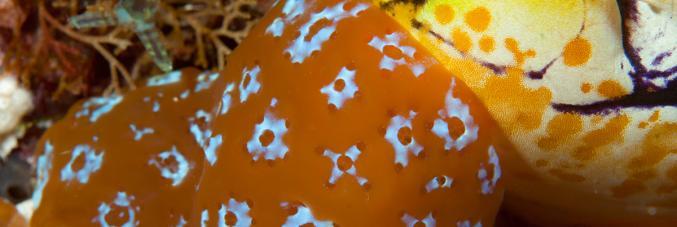
Are the Lagoons of Venice hiding the secrets to defeating Alzheimer’s and Parkinson's disease?
28.04.2023
Still, to this day, the causes of diseases such as Alzheimer’s or Parkinson's are unknown. Consequently, available therapies are unfortunately unable to stop or slow down their pathologies. This challenge applies to all of the so-called neurodegenerative diseases, including the most common types such as Amyotrophic Lateral Sclerosis (aka ALS or Lou Gehrig’s disease), and lesser known such as frontotemporal dementia (FTD).
However, some unexpected help could come from a small marine invertebrate called Botryllus schlosseri, commonly known as star or colonial tunicates that grow and reproduce at low depths in nearshore saltwater environments. These simple organisms also thrive in warm and nutrient-rich areas of the Adriatic Sea, including the Lagoons of Venice. With rudimentary brains of just under a thousand neurons, Botryllus schlosseri shares substantial genomic homology with mammals, for this reason, researchers have been using them as model organisms for some time now.
From the Department of Biology at the University of Padua, Prof Lucia Manni coordinated the international team of researchers from Stanford University in California (Chiara Anselmi), the University of Milan (Alberto Priori and Tommaso Bocci), and other institutions in the study entitled Multiple Forms of Neural Cell Death in the Cyclical Brain Degeneration of A Colonial Chordate. Published in ‘Cells’ by MDPI, the study highlights how this invertebrate contains all the genes involved in human neurodegenerative diseases and, during its life cycle, how its nerve cells age exactly as they do in humans.
Co-author of the study Prof Alberto Priori of the Department of Health Sciences at the University of Milan, “Our results could open up unprecedented scenarios in identifying the lowest common denominator between dissimilar human pathologies and in the use of new methods of non-invasive electrical brain stimulation for the prevention and treatment of neurodegeneration."



